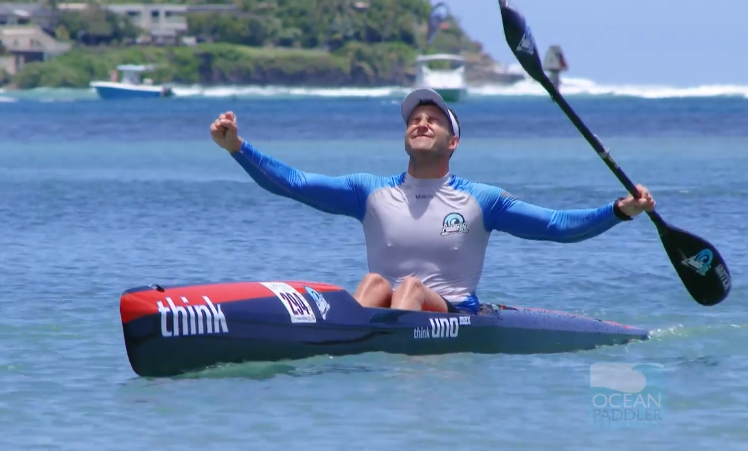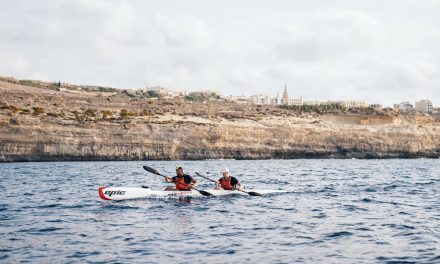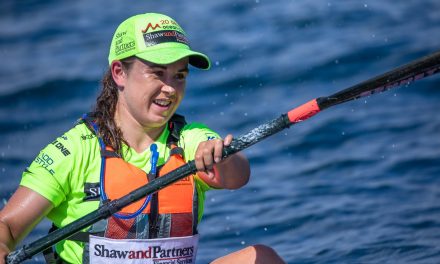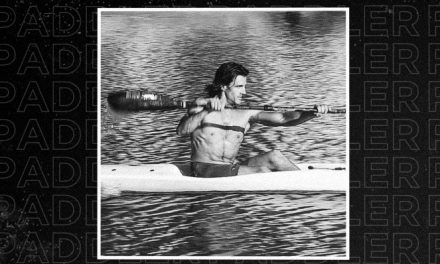ORGANISERS SAY MOLOKAI CHALLENGE NOT IN DANGER OF DISAPPEARING
The Kanaka Ikaika Racing Association has declared the Molokai Challenge is not in danger of disappearing, despite the surprisingly low number of surfskis in this year’s event.
Just 10 surfski paddlers lined up for the iconic island crossing, sparking fears from the global downwind community about whether the revered race will survive.
But race director Jim Foti has dismissed concern, explaining the success of the outrigger relay division provides the Molokai Challenge with long-term certainty.
“In years past, we included SUPs and paddleboards, because we’re an inclusive organisation,” Foti explains. “But that really made things harder to run, because they’re so much slower.
“We cut those out this year, but we would never cut out surfski… that’s where the Kanaka Ikaika started. If we’re going to do the race, we’re going to include surfskis.
“I think we have enough OC numbers at the moment. We’re working with PA’A to do the OC relay each year and they do the OC1 solo.
“Whether we have 10 skis or 60 skis… surfski will always be welcome.”
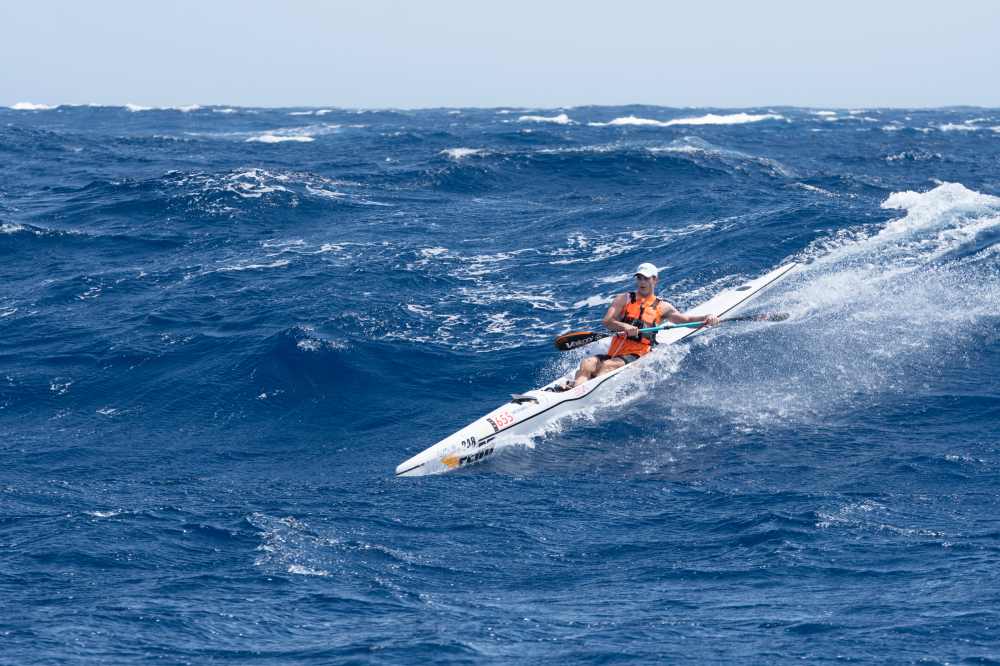
That partnership with PA’A, the Paddling Athletes Association, is crucial to the future of the Molokai Challenge.
The establishment of PA’A’s Kaiwi Solo crossing in 2008 saw outrigger paddlers move away from the Kanaka Ikaika’s version of the race.
At first, it helped organisers manage the huge number of surfski paddlers taking on the gruelling, and logistically challenging, crossing.
But after years of decreasing participants, conversations began about how to best include, and cater for, the local Hawaiian ocean sports community.
So when the opportunity arose to have the outrigger fraternity return, in the form of an OC relay division, the Kanaka Ikaika Racing Association jumped at it.
“That’s what really saved us with the numbers,” Foti says.
“We did a lot of collaborating with PA’A on that this year. We really helped each other out a lot. I represented PA’A at meetings with the local community, too.
“Moving forward, I think a similar format will work. I feel pretty good about our two organisations working together.”
This was always shaping up as a difficult year for the Molokai Challenge.
Just 12 months after celebrating the signature of Shaw and Partners Financial Services as the race’s naming rights partner, organisers again found themselves without a major sponsor.
That split also saw the absence of around 30 entrants who previously had their trips funded by Shaw and Partners, numbers that in turn played a considerable role in propping up the event.
Yet, rather than feel daunted by the void, Foti viewed it as a fresh opportunity.
“It felt a bit all-or-nothing,” he admits. “But we had a great event.”
“The vibe was awesome and that organic feeling was there… the atmosphere was great.
“That’s my vision at this point. Keep the surfskis solid and pump up the OC relays. The race will regenerate.”
“It was down for surfskis, which is a bummer for the surfski community around the world. We know that’s a big thing. But in Hawaii, people just aren’t really paddling surfskis at the moment.
“I know it’s hard for the Aussies and the South Africans to travel, especially when the exchange rate is so low at the moment.
“So we just want to bring it back to being an event that is super enjoyable to be at. We want to have the feeling and the atmosphere that Molokai is known for.
“Whether we end up with another title sponsor, or just a collection of smaller sponsors, we’re not sure.
“This year was the latter, and the silver lining was that it meant we weren’t beholden to anyone.”
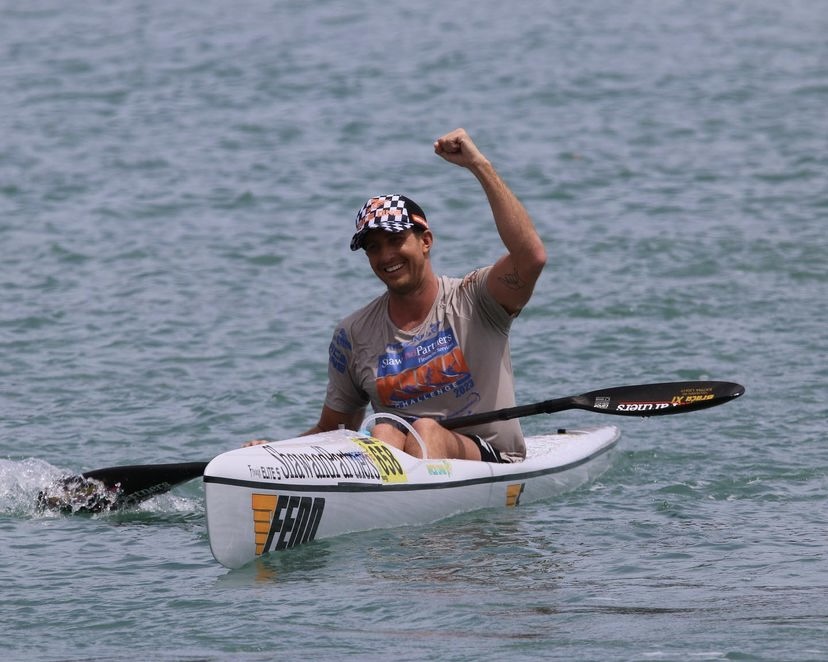
Foti is aware that the cost of competing in the Molokai Challenge is a barrier for international paddlers.
“It is almost prohibitively expensive,” he says.
Race entry is $240 USD, while the cost of hiring an escort boat can range from $800 to $1,500 USD.
Hiring a surfski can also prove to be an expensive exercise.
“We do want to attract as many sponsors as possible to help offset those costs,” Foti says.
“Ideally, we would be able to get a hotel sponsor that could potentially offer a reduced rate, things like that.
“But at the end of the day, money doesn’t go very far unless you have a ton of it. Organising a race like this, it gets swallowed up pretty quickly. We want to help where we can.”
It’s why the Kanaka Ikaika opted to still offer a respectable cash prize of $2,000 USD to the winner of this year’s race, despite running at a loss on the event.
“It’s a pride thing, right? The bragging right of the title means more than $2,000,” Foti says.
“But we wanted to put prize money on it, even though it isn’t the carrot for people to make the trip.”
And the organisation believes people will continue to do just that, confident participants numbers will return.
“Things go down, but they go back up. And they come up better.”

